Irish abortion referendum: Donegal rejects repeal
- Published
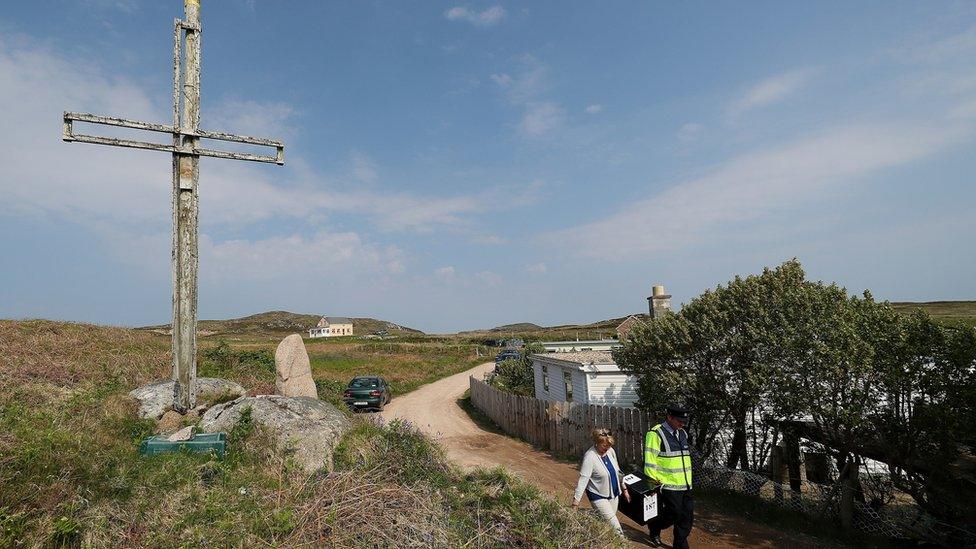
Voters on Gola island, off Donegal, went to the polls a day earlier than everyone else
On Saturday the Irish public voted overwhelmingly to relax abortion laws, but what seemed like an unstoppable wave did not reach the most northerly part of the country.
As one by one constituencies returned an endless chain of Yes votes, it became clear that No campaigners had found their solitary victory in Donegal.
But rather than revel in their small success, some sat on benches in the Aura Leisure Centre in Letterkenny and shed tears for their wider loss.
Far away from Dublin, Yes campaigners kept their celebrations to a minimum, quietly shaken by being the only county to fail to win over the electorate.
The final result was close however, with 48% voting yes and 52% saying no.
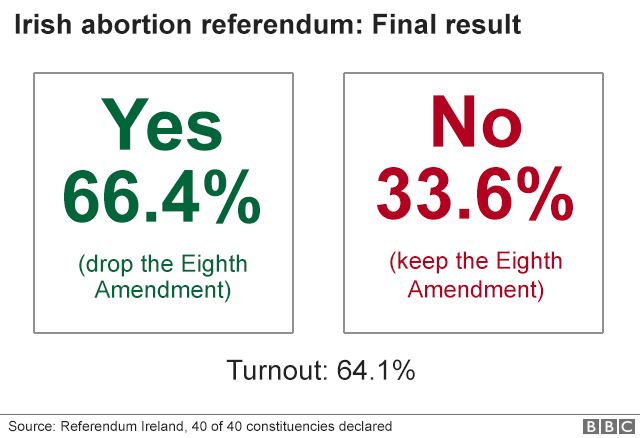
The national statistic was 66.4% in favour and 33.6% against.
At 57%, turnout in Donegal was lower than the national average of 64.5%.
'Red mark'
Since the result was declared, Donegal has received a barrage of abuse on social media for becoming the 'red mark' on the map, just as Roscommon did following the same-sex marriage referendum.
But many of the county's young people are fighting back.
They are quick to point out the difficulties of campaigning in a very rural setting and the huge numbers of young people who voted elsewhere.
Noel Sharkey, 30, who could not vote in the referendum because he has lived in Northern Ireland for more than 18 months, took to Twitter to create a thread defending Donegal voters.
Allow X content?
This article contains content provided by X. We ask for your permission before anything is loaded, as they may be using cookies and other technologies. You may want to read X’s cookie policy, external and privacy policy, external before accepting. To view this content choose ‘accept and continue’.
Mr Sharkey, who is an NHS doctor said he wanted people to know about the challenges faced by the Yes campaign in his home constituency.
He said women from Donegal had shared their stories and contributed to the national debate and did not deserve to become the butt of a joke or part of a meme.
"Many of our yes votes were cast in Dublin or Galway because there are little or no employment opportunities in Donegal and young people looking for careers are forced out," he told BBC News NI.
"Some Yes campaigners were also victimised at work and in their communities, something that was especially hard in Donegal where there weren't many people walking around with Repeal jumpers or Ta/Yes badges."
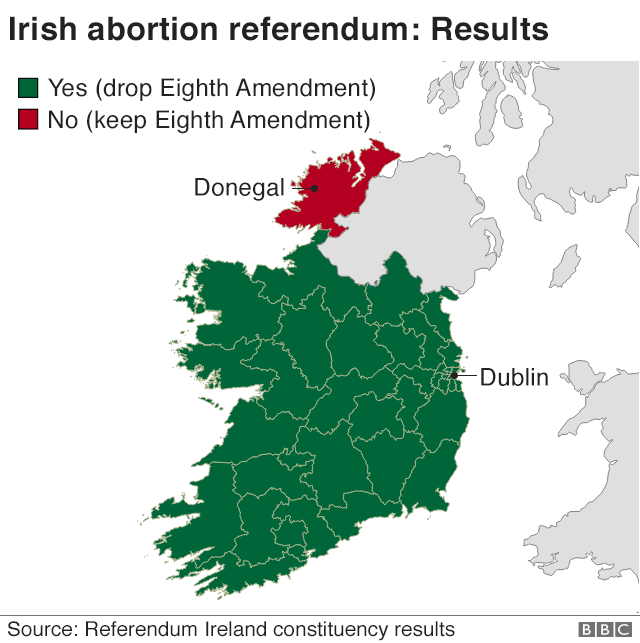
Trina O'Neill, 31, a musician from Donegal who now lives in London, has also lost her vote, but before moving to England she had already fled her home town in favour of Cork.
"It's very much the done thing," she said.
"About 80% of my childhood friends no longer live in Donegal, they've gone to Dublin or Belfast or London. So there's a massive gap in a certain demographic there.
"I'm sad to see Donegal getting such a hard time, I feel disappointed that the vote turned out that way and I'm still processing it."
'Cut off from Dublin'
Marc McMenamin, 31, also felt Donegal was being unfairly judged.
"We are a northern county, cut off from Dublin by distance and Belfast by the border," he said.
"People are saying they feel let down by Donegal, but Donegal feels let down by the rest of Ireland. The same resources just aren't offered to here, which results in most people moving away from the area for work.
"More Donegal votes for Yes were cast - just elsewhere."
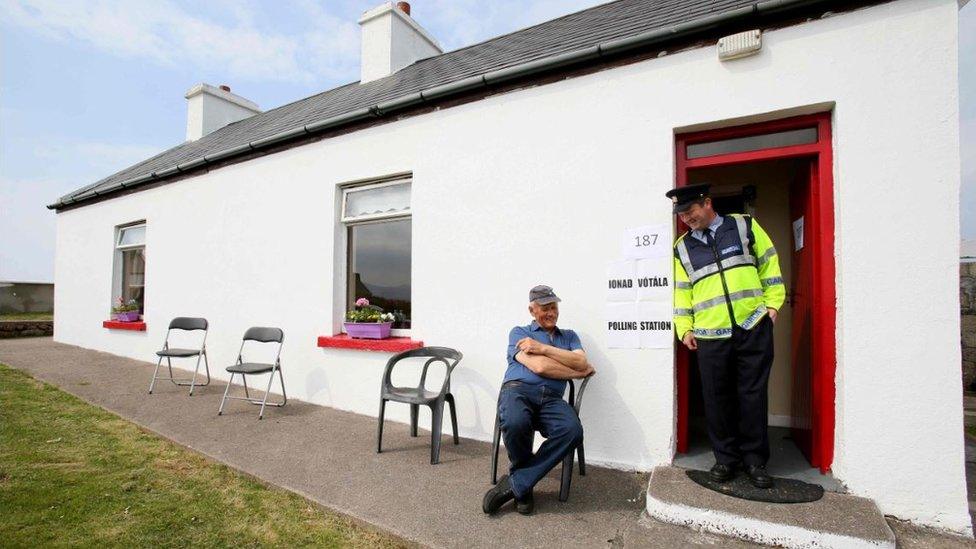
A voter said the "sanctity of life is so important to the people of Donegal"
Some have also pointed to the fact that parts of southern Donegal, where the majority of voters supported abortion reform, are now part of the Sligo/Leitrim constituency, but those votes would not have been enough alone to turn the tide in Donegal.
However Tatiana McNamara, who favoured retaining the Eighth amendment, said there was a focus on the family in Donegal.
"Donegal returned a no vote because there's a particular emphasis on family and warmth here," Ms McNamara said.
"Everyone takes care of each other, even the most vulnerable. As long as you're human you deserve a place in life, especially in Donegal."
Teresa Ní Mhíochán said the "sanctity of life is so important to the people of Donegal".
"We hope that abortion will never actually take place in Donegal because the people have spoken and they don't want it."
- Published26 May 2018
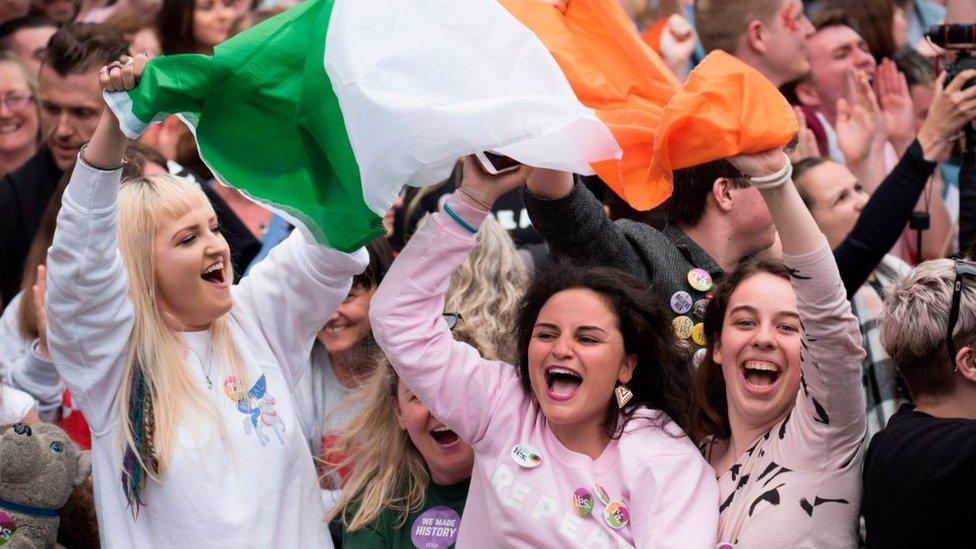
- Published26 May 2018
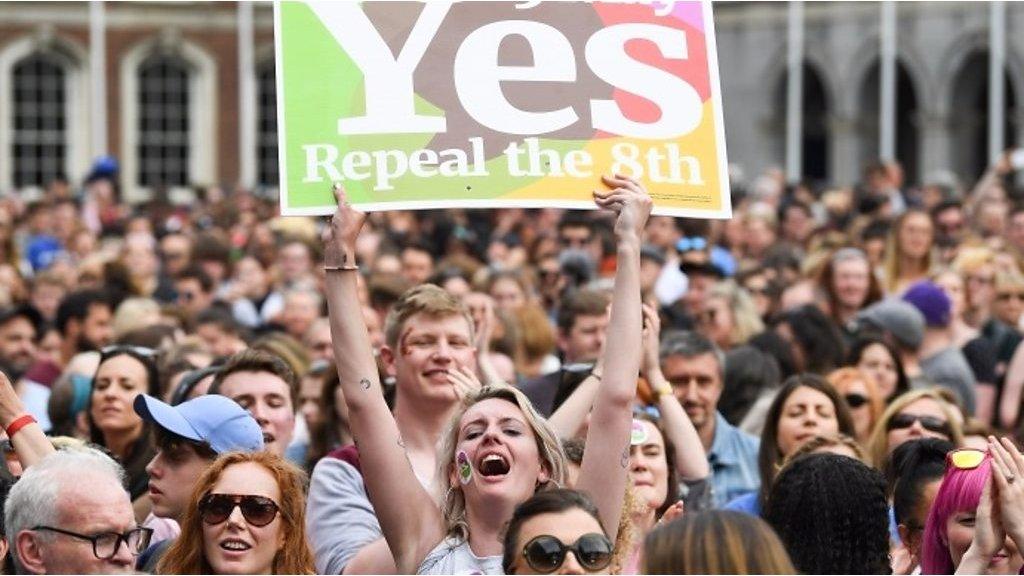
- Published26 May 2018
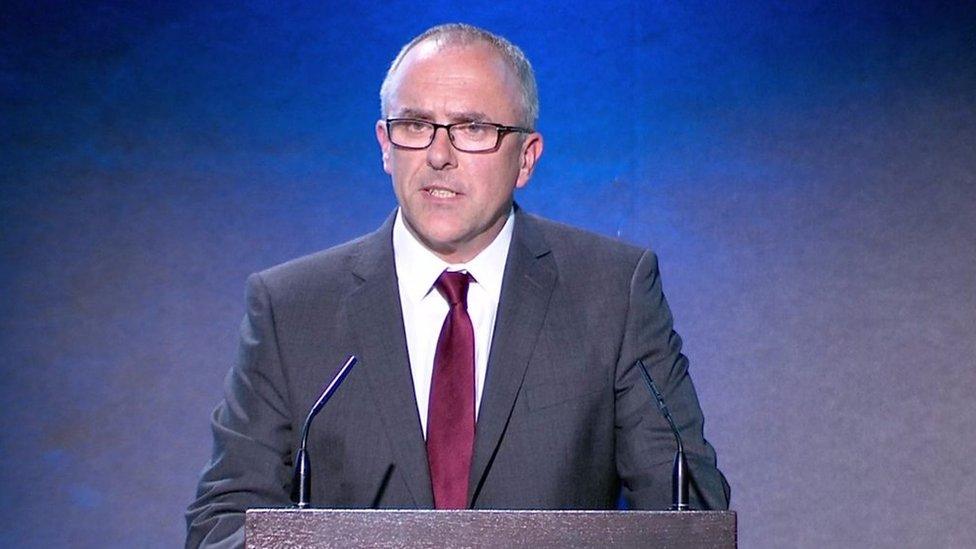
- Published26 May 2018
